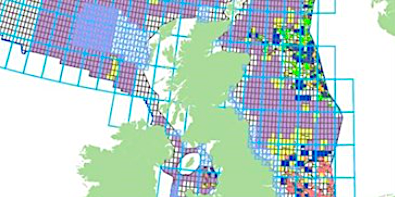Oil & Gas UK, the representative body for the UK’s offshore industry, warned on Tuesday that the sector is at a crossroads as it publishes its Economic Report 2018.
The report showed that despite the recent production upturn in the North Sea, total exploration activity this year is expected to be the lowest since 1965.
Oil & Gas UK highlighted findings which show an improved landscape for the sector, with reduced costs, competitive fiscal terms, improved operational performance and more stable oil and gas prices.
However, Oil & Gas UK chief executive Deirdre Michie warned about the impact of record low drilling activity and a potentially damaging supply chain squeeze.
More than 300,000 jobs are currently supported in the UK by oil and gas production.
Since 1970, the industry has paid almost £330 billion in production tax.
In 2017, capital investment in the UK offshore oil and gas industry was £5.6 billion.
Speaking to an audience of industry leaders, Michie said the Economic Report 2018 shows investment conditions remain key to the long-term future of the UK offshore oil and gas industry.
The report shows:
- Operating costs have halved and are now being sustained at around $15/boe
- Production is on track to be 20% higher than 2014
- More major new projects have been sanctioned by Exploration and Production (E&P) companies so far this year than the last two years combined
However, this recovery is yet to be felt across the whole of the sector, with the report noting:
- Four exploration wells were spudded in the first eight months of the year — and even with more wells to come, total exploration activity this year expected to be the lowest since 1965. The capacity of the supply chain has been reduced in recent years, as revenues and margins continue to be squeezed.
- By 2021 there could be capacity constraints emerging across the supply chain, as a result of the reductions in recent years and an expected increase in new development activity at home and abroad. The constraints are expected to be felt most across drilling and wells services and within engineering and subsea sectors.
Michie said: “Industry is emerging from one of the most testing downturns in its history.
“However, the steps that have been taken by industry, government and the regulator have delivered tangible results.
“Despite the improvements seen in recent years, we find ourselves at a crossroads.
“Record low drilling activity, coupled with the supply chain squeeze, threaten industry’s ability to effectively service an increase in activity and maximise economic recovery.
“The UK Continental Shelf is a more attractive investment proposition – our challenge now is to take advantage of this.
“We have to drive an increase in activity while continuing to find and implement even more efficient ways of working which support the health of supply chain companies whilst also keeping costs under control.
“It shows that investment conditions remain key to the long-term future of the North Sea industry.
“Choosing the correct direction of travel is critical to securing our ambition for the future, outlined in Vision 2035.
“The sector deal is a further important step in delivering this vision.
“Essential for security of energy supply, supporting hundreds of thousands of skilled jobs and contributing billions to the economy, this is a vital industry.
“As our Economic Report shows, with the right stewardship across the industry, it will continue to play a leading role for many decades to come.”
